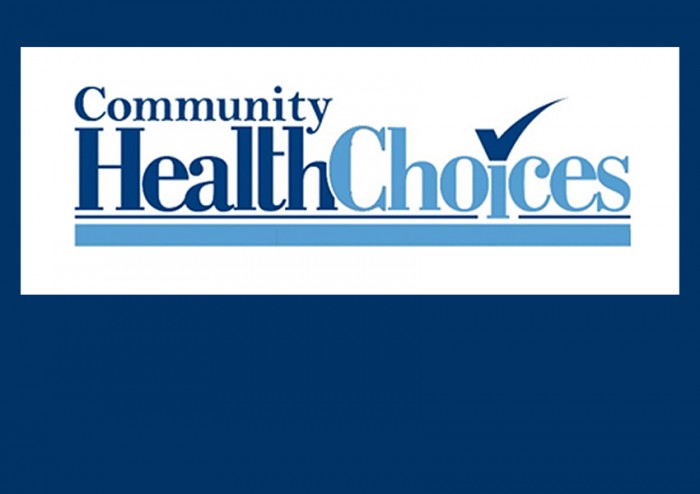DDAP Announces Webinars and Resources
Today, the Department of Drug and Alcohol Programs announced the following webinars and resources Please click on the title for further information.
DDAP TRAINING WEBINAR
Lessons Learned: Providing Telehealth Recovery Support Services During COVID-19 – Friday, May 22 at 10:00 AM
Multiple Pathways provides our peers opportunities to see that recovery is possible. What happens when those pathways become limited, or not available with almost no warning? Using the Stages of Change Model take a journey with us as we share lessons learned in providing telehealth Recovery Support Services during COVID-19.
OTHER WEBINARS
Mitigating the Intersection of COVID-19 and Opioid Use Disorder – Wednesday, May 20 at 3:00 PM
Keeping patients with opioid use disorder engaged in treatment in a rapidly altered practice dynamic due to COVID19 is critical. This discussion and interactive panel with clinicians, policy experts, and regulators will highlight the challenges faced in addressing the complex issues involved in such efforts.
Understanding Mental Health in the Black Community – Thursday, May 21 at 6 PM and Friday, May 22 at 11 AM
A discussion about mental health awareness, breaking down stigmas and barriers plaguing communities of color that prevent individuals and their families from seeking treatment and/or support.
Community HealthChoices Third Thursday Webinar Thursday, May 21
Please join us for the next Community HealthChoices (CHC) Third Thursday Webinar on May 21, 2020, at 1:30 p.m. Office of Long-Term Living (OLTL) Deputy Secretary, Kevin Hancock, will be providing updates on COVID-19.
Click here to register for the webinar.
After registering, you will receive a confirmation email containing information about joining the webinar.
If you require captioning services, please click here and use the log in information:
Username: OLL / Password: OLL
Reminder: All CHC related information can be found at www.healthchoices.pa.gov. Comments can be submitted electronically to RA-PWCHC@pa.gov.
If you have any questions, please contact the OLTL Bureau of Policy Development and Communications Management at 717-857-3280.
A listserv has been established for ongoing updates on the CHC program. It is titled OLTL-COMMUNITY-HEALTHCHOICES, please visit the ListServ Archives page at http://listserv.dpw.state.pa.us to update or register your email address.
It is imperative that you notify the Office of Long-Term Living for changes that would affect your provider file, such as addresses and telephone numbers. Mail to/pay to addresses, email addresses, and phone numbers may be updated electronically through ePEAP, which can be accessed through the PROMISe™ provider portal. For any other provider file changes please notify the Bureau of Fee for Service Programs Enrollment and Certification Section at 1-800-932-0939 Option #1.
Inclusion Confusion: What Is the SELF-ID Form and Why Is It Important?
Mid-ATLANTIC ADA Center Features
Janet D. Fiore in Webinar on SELF-ID
Thursday, May 21, 2020
CEUs AVAILABLE
Learning points include:
- The new SELF-ID Form
- The Difference between Self-ID and Self-Disclosure
- How people FEEL about discussing disability
- The varied needs/opinions of Business, Individuals and VR professionals
- Tips on How Professionals can work together to drive up the use of the Self-ID form
This Webinar is timely as the new SELF-ID form has just been released!
Webinar is free to attend, a small fee will be required for a CEU certificate.
Register:
https://www.adainfo.org/training/self-ID-form
“This Webinar will debunk the mystery about when and how to discuss disability in the workplace.”
– Janet D. Fiore, CEO of The Sierra Group
For additional professional development training on unconscious bias, disability inclusion and etiquette visit www.thesierragroup.com for all of your Disability and Inclusion needs.
800-973-7687
TheSierraGroup.com
Not all heroes wear capes in the coronavirus pandemic by RCPA President Richard S. Edley, PhD
OCYF Bulletin Updated PA Safe Haven Act 201
The Office of Children, Youth and Families (OCYF) has released Bulletin 3490-20-01, “Pennsylvania Safe Haven Act 201 of 2002 ‘The Newborn Protection Act’ as amended by Act 91 of 2014 and Act 68 of 2017.” The purpose of this bulletin is to transmit requirements and guidance related to legislative changes to the Newborn Protection Act as amended by Act 91 of 2014 and Act 68 of 2017. These changes include allowing police officers at police stations and emergency services providers on the grounds of an entity employing emergency services providers to accept newborns, as well as an optional provision for Safe Haven locations to provide an incubator for the acceptance of a newborn. This bulletin rescinds and replaces OCYF Bulletin 3490-11-01, Implementation of Act 201 of 2002, previously released in July 2011. Questions regarding this bulletin should be directed to Ms. Teresa Musser, Human Service Program Specialist in OCYF’s Bureau of Policy, Program and Operations as outlined on the first page of the bulletin.
If you have further questions, please contact RCPA Children’s Division Director Jim Sharp.
DHS Guidance Regarding Medical Assistance Transportation Program
The Department of Human Services (DHS) has issued updated guidance regarding the Medical Assistance Transportation Program (MATP) in light of the COVID-19 public health emergency. A consumer-facing notice is also available. IDD Transportation Providers must follow this guidance.
On Friday, May 15, PA Health Access Network held a call to review the state’s most recent MATP guidance updates. They have created an updated, one-page summary of the guidance to be more consumer-friendly which we encourage you to share, available in English and Spanish. Also available is a recording of the call.
DOH Policy Regarding Hospital Visitation Procedures
The Department of Health (Department) has received questions and requests for guidance from hospitals, health systems, and their representatives on their responses to Coronavirus Disease-2019 (COVID-19) and whether measures being implemented or contemplated are compliant with the statutory and regulatory requirements under the jurisdiction of the Department.
In a document released May 12, 2020, the Department’s guidance includes the following language regarding visitor policies:
The Department strongly encourages that a hospital’s visitor policy allow for a patient support person at the patient’s bedside for patients in labor and delivery; pediatric patients; and patients for whom the hospital determines a support person is essential to the care of the patient, including patients with intellectual and/or developmental disabilities and patients with cognitive impairments such as dementia. Hospitals do not need the Department’s approval to implement a new visitor policy in response to COVID-19.
RCPA Member Telehealth Survey
As part of RPCA’s ongoing effort with members’ and stakeholders’ support of the telehealth expansion and the building of a sustainable service platform, we are asking members to complete this telehealth survey. Because many organizations provide telehealth across multiple service areas (i.e. Children’s, D&A, Adult Outpatient, etc.); we respectfully request that one survey be completed for each of those program areas in which you are providing telehealth. The data we collect will be instrumental in our collective efforts with DHS, managed care organizations, and other critical decision makers to ensure telehealth has a place in your continuum of care. Thank you.


















